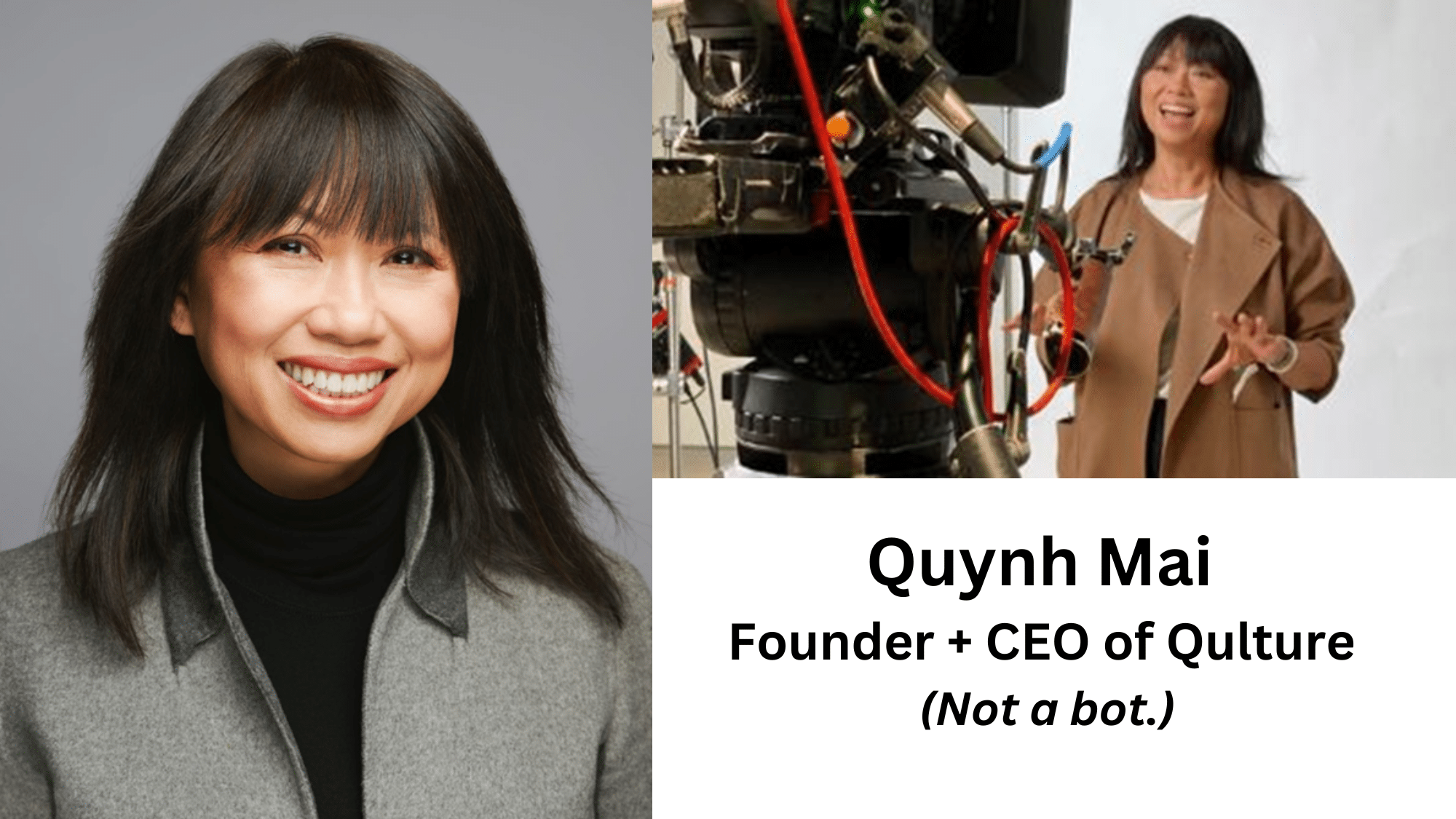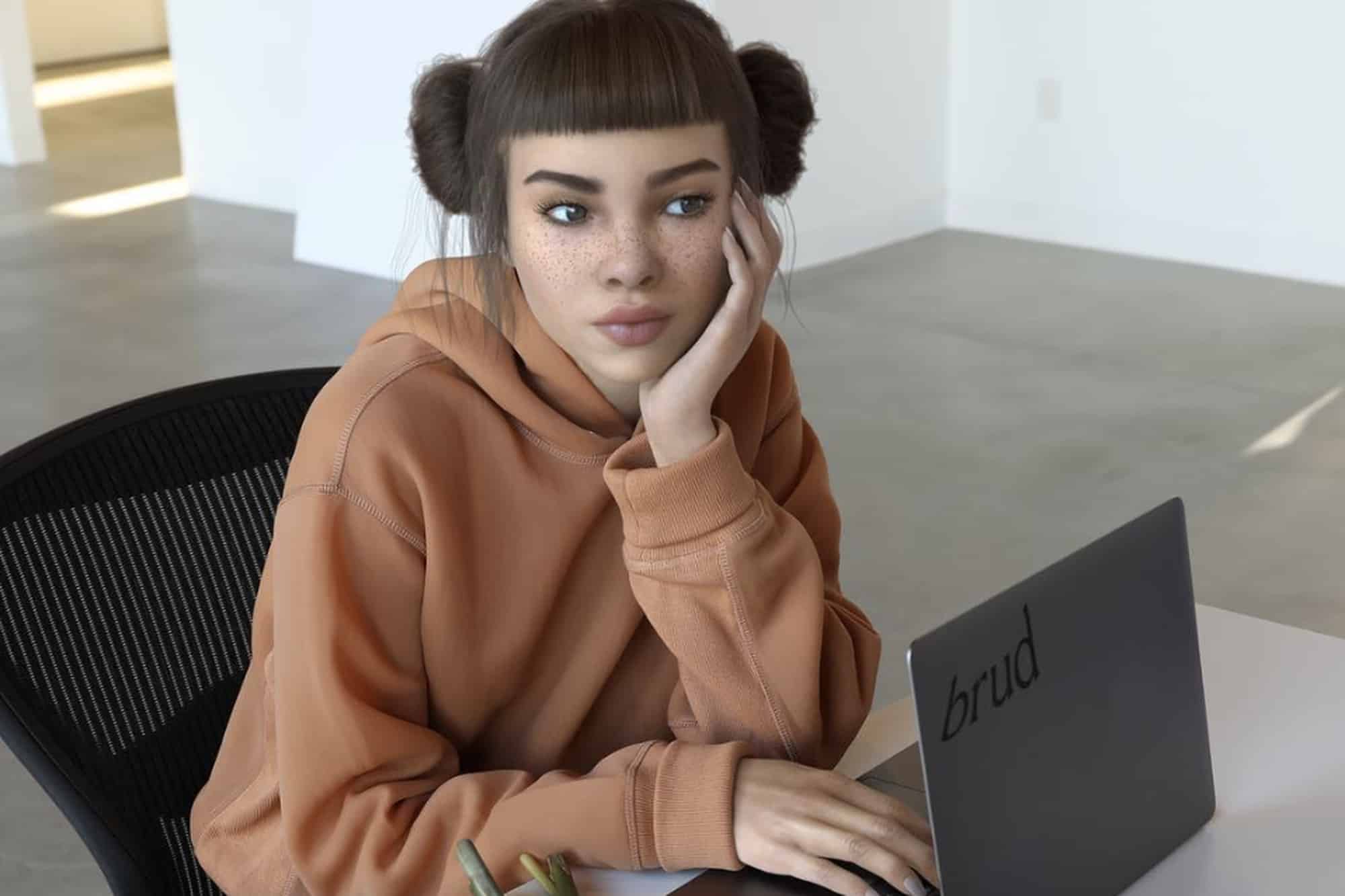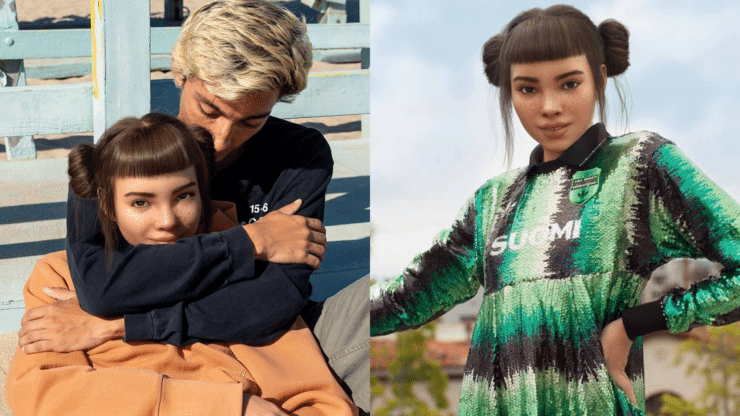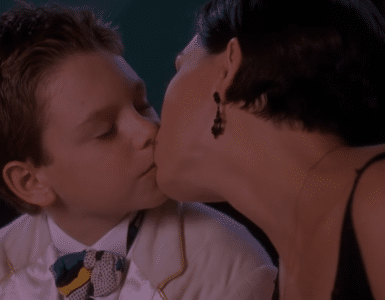At first glance, Miquela Sousa is your average teenage influencer.
Known online as Lil Miquela, she has 3 million followers on Instagram and has accounts on Twitter, Tumblr, YouTube, and TikTok.
Lil Miquela has endorsements with Calvin Klein, Prada, and streetwear brands and has been photographed with such famous faces as Millie Bobby Brown, Bella Hadid, and Diplo, to name a few.
In fact, she even signed with the talent agency CAA in 2020 to manage her growing popularity.
Also? She’s a CGI influencer. Strictly speaking, Lil Miquela doesn’t exist.
A bot (from “robot”) is a software application that imitates human activity on the Internet.
Influencer and celebrity bots may have millions of followers and come with a digitally-rendered persona that is so lifelike it is challenging to distinguish them from a real person. By 2027, some experts predict it will be almost impossible to do so.
Virtual influencers have shot up in popularity, reaching out from the metaverse to grasp the mainstream. A recent survey revealed that 75% of 18-24 year-olds claim to follow at least one virtual influencer.

We spoke to Quynh Mai, the CEO of Gen Z-centric digital marketing consultancy Qulture. Her firm advises its mega-brand retailer clients on how to market to Gen Z successfully — and she’s also an actual person.
Mai has a bipartisan approach to celebrity bots, claiming that both positive and negative features can be found within this cult of virtual personality.
The Upside
The top bot influencers are created by high-tech shops for cost-effective marketing. Big brands like Samsung, Amazon, Prada, Dior, and Calvin Klein have all dipped their well-manicured toes into the virtual pool.
“Virtual celebrities never get in the same kind of trouble real ones do, and will never be canceled for a scandal, a racist comment or DUI,” says Mai, who advises her big brand clients when and how best to retain a celebrity bot.
Though the subjects are virtual, the profits are real. Major investors have backed Lil Miquela’s creators, and the numbers are rumored to be in the millions.
An Epidemic of Loneliness
Three years of COVID created what Mai calls an “epidemic of loneliness.”
“Young people were really in the middle of developing their social skills (before the pandemic),” says Mai, suggesting that virtual characters could actually offer teens and tweens emotional support to fill the gaps.
“They learn to mimic your speech and your conversational patterns, so they create a very human-like interaction that I think gives 100% acceptance to young people who need that self esteem, who need that friend and positive reinforcement.”
Mai feels that bots can create a safe space for teens to practice socializing skills, relationship-building, and conversation without fear of abandonment or judgment.
“There’s a lot of anxiety for young people. ‘Oh, they never responded to me,’ or ‘It’s been two days and I haven’t received a response.’ So this virtual character gives them that reciprocity. And that is very beneficial to a young person who’s still trying to learn how to socialize (and reintegrate) in the real world.”
The Downside
According to a recent report, Gen Zers use social media for four or more hours each day – double the rate of all US adults. As the amount of time spent on social media increases, this ultra-connected generation may start losing sight of what constitutes a real person – or a real relationship, for that matter. Bot influencers are available to chat 24/7, which can further isolate teens from healthy, human interaction.
What remains to be seen is whether teens know Lil Miquela is real, or whether they even care.

Mai advises parents to look at the bot phenomenon through a Gen Z lens, a digitally-native category of kids that have grown up with a very different version of engagement and human interaction.
“For them, there is no difference between a digital interaction and a physical one,” says Mai. “They don’t have the memory that we have of riding our bikes until sundown with our friends. They don’t have the memory of sleepovers every weekend or camping out in the backyard, and they’re not missing it. Their sense of IRL versus URL is completely blurred, and both provide value in different ways. So as adults, we have to be very careful not to judge them through our lens.”
ALSO: You Should Encourage Your Teen to Travel After High School
Celebrity bots are beautiful, articulate, and aspirational; as with flesh and blood celebrities, it’s a slippery slope when teens start comparing themselves to standards that are not only unattainable but unreal. After all, if we only show our best, most perfect selves online, where do the messy bits go? “Bots are so ‘perfect’ that a real person, especially a teen girl, can never measure up. This creates an unreal expectation of beauty, relationships, and connection,” says Mai.
Real people are complicated and interesting and promote self-discovery. You can’t get that from a bot.
What’s Next: The AI Connection
As impossible as it sounds, bots like Lil Miquela are almost old news.
“Lil Miquela started three years ago,” says Mai. “She’s kind of ‘1.0’. (She’s) a flat-dimensional viral character. Today, that character is fused with AI, allowing you to create a personalized character.” Mai cites Replika and Character AI as examples (Editor’s note: Members under the age of 13 will be denied an account).
Much like the SIMS of eons past, these characters can be customized with different hairstyles, clothing, etc. The major difference? These characters can think. Sort of. “I get to create this virtual character that, as a user, is personalized to me. She’s responding to my input, she’s responding to my conversation. She’s learning my vocabulary and my interests to create a feedback loop for me.”
Replika reportedly has two million users. ChatGPT (which stands forChat Generative Pre-trained Transformer, an artificial intelligence chatbot developed by OpenAI ) became an overnight sensation; Mai estimates that at one point, ChatGPT had 65 million visitors. Even though the technology is in its early stages, there are other AI variables rushing to market and popping up online as fast as you can say “Black Mirror”.
How to Talk to Your Teen
It’s important to reiterate to your young adult that what they’re “following” is highly-stylized content – Lil Miquela will never grow old, never get a pimple and never love your teen like you do. Personal style, while influenced by the world around them, is ultimately about what makes them unique, not what makes them the same as everyone else.
Still, that’s a hard lesson to bestow on a generation that seldom sees the difference between reaI and virtual. “I think the biggest issue for parents is reinforcing and educating their kids. I work a lot with tech companies in Silicon Valley, and those parents are fastidious about managing their children’s screen time, understanding fact checking, understanding the limits of technology, and really explaining it to their children over and over again,” Mai says.
Parents who want to investigate this new technology for their children would do well to do some research beforehand and use parental controls judiciously.
“Check what your children are doing – constantly,” advises Mai. “Have their passwords, pick up their phone, check their emails, check their texts, check their Snapchat sign-in, be unrelenting about the rule that being a tech owner is a privilege; they should be unafraid to show you their device at any time.”
ALSO: Signs Your Teen is Addicted to Smartphones and Social Media
Parenting children in the world of bots, avatars, and AI requires adults to be proactive and informed. As technology continues to evolve (and it will), parents must adapt to the challenges that come with it, understand the risks and benefits associated with this new world, and to educate themselves and their children on how to safely navigate it.
“Oftentimes, parents follow after technology adoption,” says Mai. “I have so many parents asking me, ‘What is TikTok?’ And I tell them by the time they’ve asked the question, it’s too late. You should have asked when you installed the app.”
As the lines continue to blur between IRL and URL, it can be a daunting task to preserve a teen’s identity, autonomy, and resilience while protecting their safety and delicate self-esteem simultaneously. The balance may lie somewhere in the middle.









Add comment